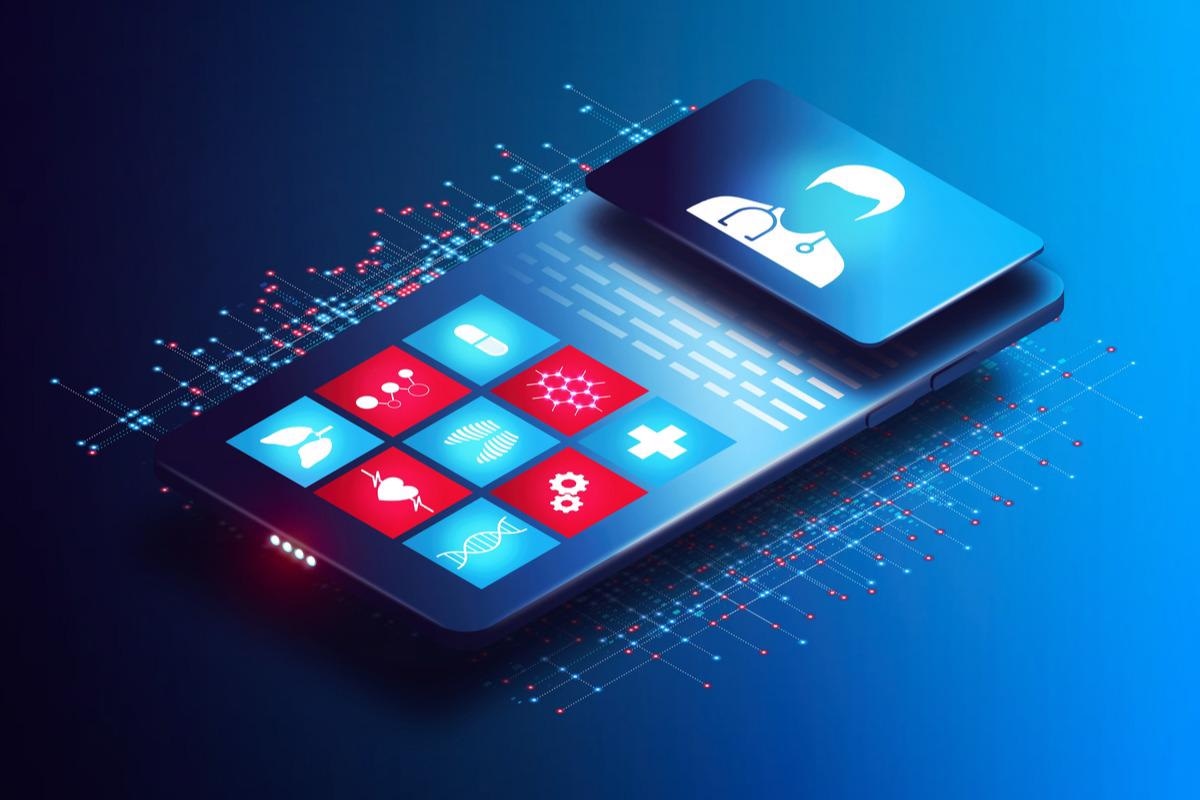Digital therapeutics are a part of digital health that deliver therapeutic interventions directly to patients via evidence-based, clinically-evaluated software for disease management. The term "digital health" collectively refers to all platforms and technologies that provide digital solutions to improve healthcare delivery. Digital health technologies include telehealth, mobile health, smart devices, wearable devices, sensors, etc.

Image Credit: ArtemisDiana/Shutterstock.com
What are Digital Therapeutics?
The term "digital therapeutics" was mentioned for the first time in a paper published in 2015 by Sepah et al. to define "evidence-based behavioral treatments delivered online that can increase accessibility and effectiveness of healthcare."
According to the Digital Therapeutics Alliance, the products of digital therapeutics encompass advanced technologies to ensure best practice in design, clinical support, usability, and data security. As an effective solution to healthcare delivery systems, the products of digital therapeutics have been developed with the aim of increasing patient's accessibility to effective and clinically safe treatments, providing clinical solutions for untreated or undertreated health conditions, extending physician's ability to treat patients, providing therapeutic solutions in multiple languages, and providing accurate results and information on personalized disease management and outcomes to patients and physicians.
The estimated budget of the global digital therapeutics market is 1.8 billion USD in 2018, which is projected to reach 7.1 billion USD by 2025. According to available literature, the highest use of digital therapeutics has been observed for diabetes and obesity management. A continuous effort is being made to extend its application to other critical diseases, including chronic obstructive pulmonary disease (COPD), post-traumatic stress disorder, and developmental disorders.
History of Digital Therapeutics
The concept of technology-mediated delivery of therapeutic care to patients outside conventional setups, such as hospitals and clinics, was developed for the first time by Dr. Joseph Kvedar in 1995. The initial idea was to overcome the restrictions (time, place, and personal limitations) that a physician may face while providing effective medical care to patients. This concept by Dr. Joseph Kvedar is the fundamental base of today's digital therapeutics.
The term "E-patient" was first provided by Dr. Tom Ferguson in 1999. E-patients refer to those who are "equipped, enabled, empowered, and engaged in their health and healthcare decisions." These patients actively participate in health-related decision-making and want to remain up-to-date about their medical/health technology-related queries from physicians.
With an increasing number of E-patients in today's world, the need for digital health and digital therapeutics has become inevitable.
What are the Benefits of Digital Therapeutics?
Digital therapeutics provide improved and long-lasting health outcomes by applying scientifically-developed technologies that monitor all aspects of treatment progression as well as the changes in patients' behavior. These technical applications can encourage patients to follow prescribed treatment regimens, diets, and exercise routines. The software used in digital therapeutic products must be equipped with accurate and appropriate evidence and should be able to prevent and manage diseases.
Digital therapeutic applications are well-resourced with clinical and scientific evidence and thus, are suitable to target specific diseases/disorders, including metabolic, cardiovascular, and pulmonary diseases. This is the major difference between these applications with other wellness applications.
Digital therapeutic services provide additional benefits over conventional therapeutic delivery systems and have the potential to replace the existing systems. Mobile applications that come under digital therapeutics can improve patients' adherence to treatment by reminding them about the dosage of medicines and the time of intake. In addition, there are mobile applications that deliver sensory stimuli to patients to substitute medications.
Some applications targeting treatment adherence are based on a robot that uses artificial intelligence together with psychology modeling. The robot helps patients persistently adhere to their treatment regimen via conversations.
Regarding the impact of digital therapeutic applications on patients' behavioral changes, evidence indicates that behavioral interventions targeting diet and exercise via face-to-face communication, educational curriculum, and personalized health coaching can significantly reduce the risk of developing diabetes and managing diabetic conditions.
Another major benefit of digital therapeutic applications is targeting poorly-addressed health conditions, including chronic diseases and neurological diseases. Moreover, emerging evidence highlights the importance of digital therapeutic applications in reducing or preventing substance addiction. One such mobile application has recently received approval from the US Food and Drug Administration (FDA) to treat alcohol, marijuana, and cocaine addiction. The evidence collected from clinical trials has shown that using this application for three months can prevent addiction in 40% of patients compared to 17% of patients who received standard therapy alone.
Various digital therapeutic applications of cognitive-behavioral therapy are emerging rapidly. These applications effectively treat mental health disorders, including depression, anxiety, schizophrenia, and insomnia.
What are the factors restricting a large-scale adoption of digital therapeutics?
Despite the significant positive impact on healthcare delivery, digital therapeutics still struggle to enter mainstream healthcare. The main obstacle is difficulty differentiating evidence-based, clinically-proven digital therapeutics applications from other low-quality, unverified wellbeing applications that are easily available in the digital health market.
ZS: How digital therapeutics are changing healthcare
References
Further Reading
Last Updated: Apr 19, 2022